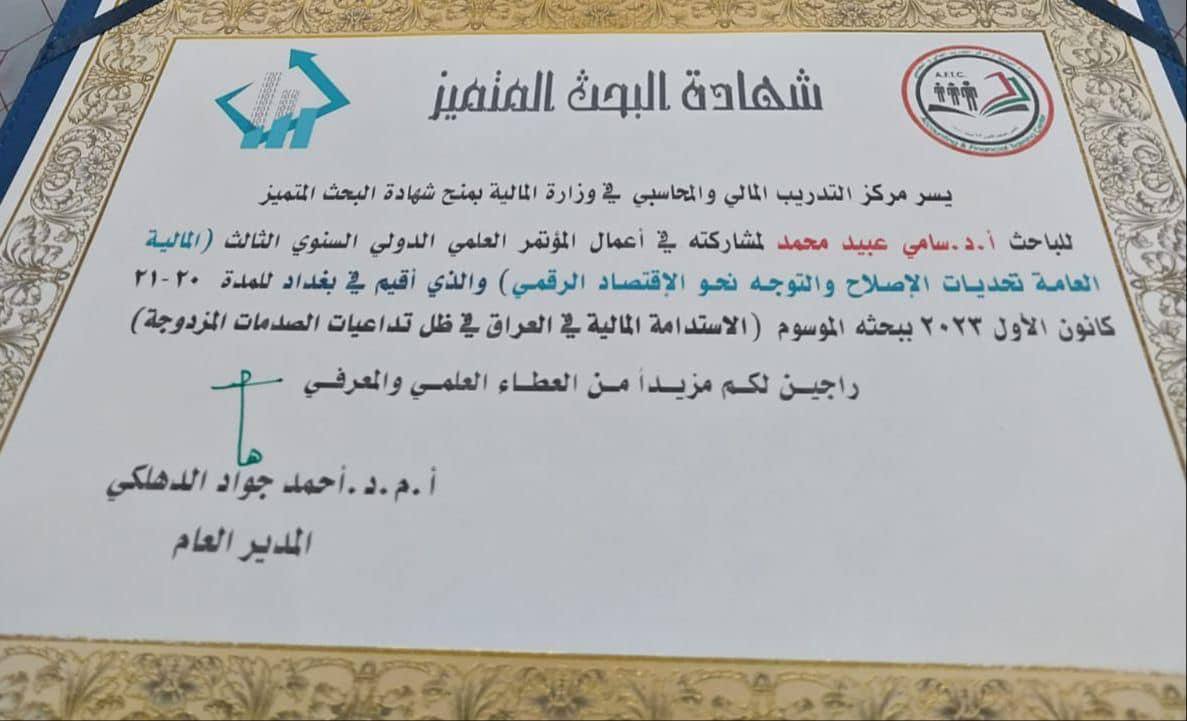.jpg)
The scientific research titled (Financial Sustainability in Iraq in Light of the Repercussions of the Double Shocks) was selected by the Dean of College of Industrial Management for Oil and Gas at Basra University for Oil and Gas, Professor Dr. Sami Al-Tamimi, among the best ten distinguished scientific researches participating in the work of the Third Annual International Conference of Financial Training Center. And the accountant in the Ministry of Finance, entitled (Public Finance: Challenges of Reform and the Move Towards a Digital Economy), which was held in the Financial and Accounting Training Hall of Ministry of Finance in Baghdad and under the patronage of the Minister of Finance, Taif S. Muhammad, and under the slogan “Reforming public finance is our path to achieving economic prosperity” and in cooperation with College of Administration and Economics/Al-Mustansiriya University and Administrative Technical College - Baghdad/The Central Technical University and College of Business Economics/Al-Nahrain University and the Higher Institute for Accounting and Financial Studies/University of Baghdad, with support from Central Bank of Iraq, the National Investment Authority, the General Authority for Customs, the General Authority for Taxes, and the House of Wisdom for training and consulting, for the period 20-21 December. The first is 2023, and based on the distinguished research of the Dean of College of Industrial Management for Oil and Gas, Professor Dr. Sami O. Al-Tamimi, he uses the latest models to measure the impact of oil shocks on financial sustainability (ARDL Model) and aims to achieve financial sustainability through establishing a sovereign fund that adapts to oil shocks and enhancing financial stability. The conference witnessed the holding of scientific sessions during which contributions were presented by experts from outside Iraq from eight countries: Egypt, Jordan, Algeria, Lebanon, Sudan, Tunisia, the United States of America, the Emirates, and from inside Iraq from various Iraqi universities, with 89 papers. The Public Finance Conference aims to evaluate the tax system and enhance its role in maximizing public revenues and identify the obstacles facing the customs system and border crossings and the requirements for its reform. It also seeks to adopt modern trends in preparing and restructuring the state’s general budget, as well as determining the requirements for the sustainability of public debt and strengthening fiscal space. It highlights improving the public investment framework, its role in economic and social development, and mechanisms for reducing the conflict between fiscal and monetary policies.

